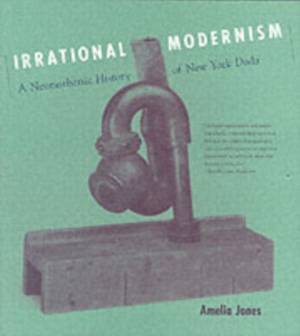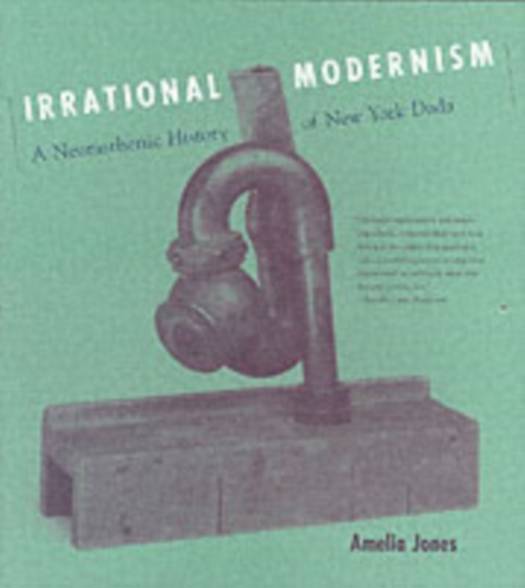
- Afhalen na 1 uur in een winkel met voorraad
- Gratis thuislevering in België vanaf € 30
- Ruim aanbod met 7 miljoen producten
- Afhalen na 1 uur in een winkel met voorraad
- Gratis thuislevering in België vanaf € 30
- Ruim aanbod met 7 miljoen producten
Omschrijving
In Irrational Modernism, Amelia Jones gives us a history of New York Dada, reinterpreted in relation to the life and works of Baroness Elsa von Freytag-Loringhoven. Jones enlarges our conception of New York Dada beyond the male avant-garde heroics of Marcel Duchamp, Man Ray, and Francis Picabia to include the rebellious body of the Baroness. If they practiced Dada, she lived it, with her unorthodox personal life, wild assemblage objects, radical poetry and prose, and the flamboyant self-displays by which she became her own work of art. Through this reinterpretation, Jones not only provides a revisionist history of an art movement but also suggests a new method of art history. Jones argues that the accepted idea of New York Dada as epitomized by Duchamp's readymades and their implicit cultural critique does not take into consideration the contradictions within the movement--its misogyny, for example--or the social turmoil of the period caused by industrialization, urbanization, and the upheaval of World War I and its aftermath, which coincided with the Baroness's time in New York (1913-1923). Baroness Elsa, whose appearances in Jones's narrative of New York Dada mirror her volcanic intrusions into the artistic circles of the time, can be seen to embody a new way to understand the history of avant-gardism--one that embraces the irrational and marginal rather than promoting the canonical. Acknowledging her identification with the Baroness (as a "fellow neurasthenic"), and interrupting her own objective passages of art historical argument with what she describes in her introduction as "bursts of irrationality," Jones explores the interestedness of all art history, and proposes a new "immersive" understanding of history (reflecting the historian's own history) that parallels the irrational immersive trajectory of avant- gardism as practiced by Baroness Elsa.
Specificaties
Betrokkenen
- Auteur(s):
- Uitgeverij:
Inhoud
- Aantal bladzijden:
- 336
- Taal:
- Engels
- Reeks:
Eigenschappen
- Productcode (EAN):
- 9780262600668
- Verschijningsdatum:
- 23/09/2005
- Uitvoering:
- Paperback
- Formaat:
- Trade paperback (VS)
- Afmetingen:
- 199 mm x 220 mm
- Gewicht:
- 716 g

Alleen bij Standaard Boekhandel
Beoordelingen
We publiceren alleen reviews die voldoen aan de voorwaarden voor reviews. Bekijk onze voorwaarden voor reviews.









